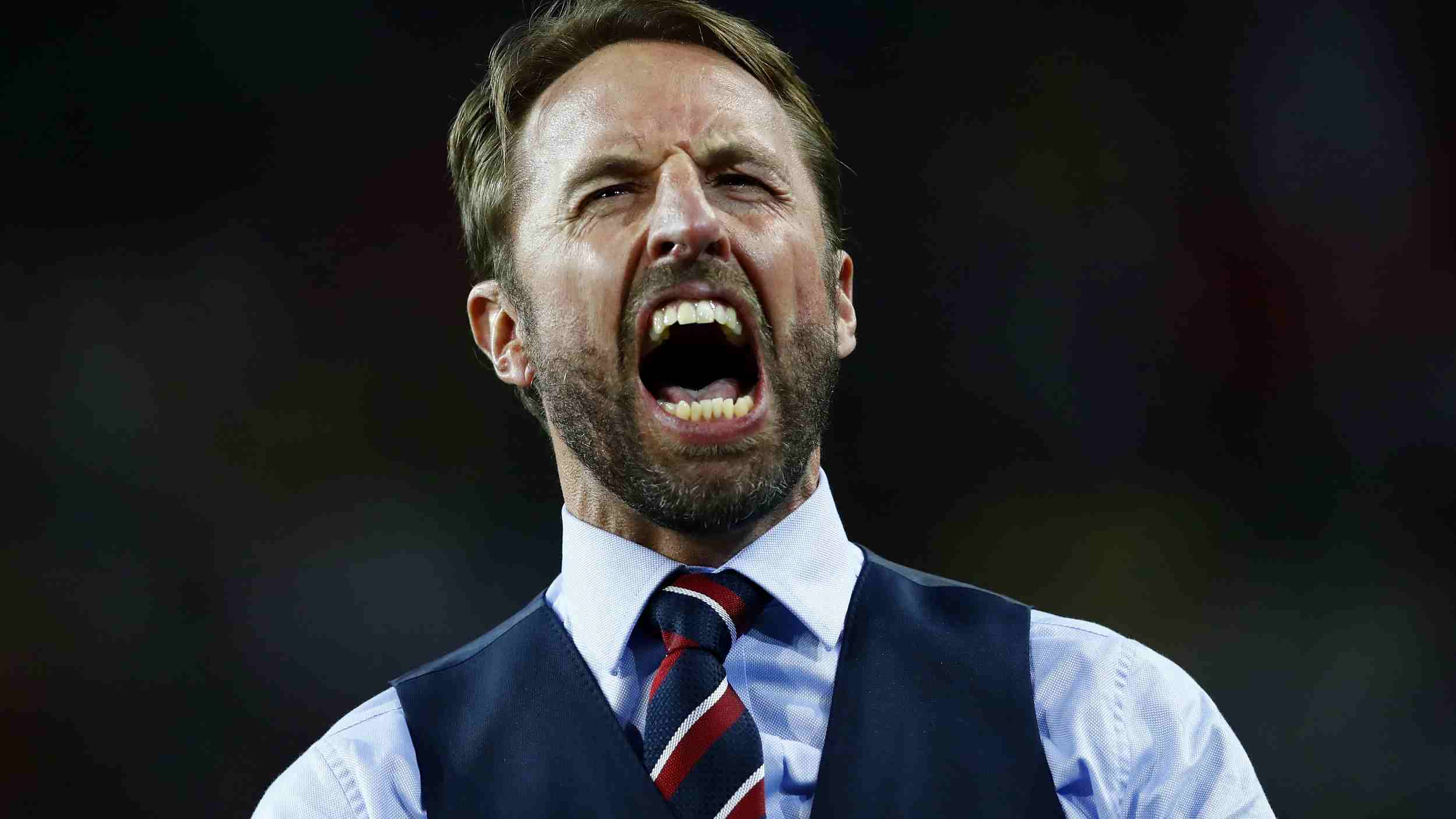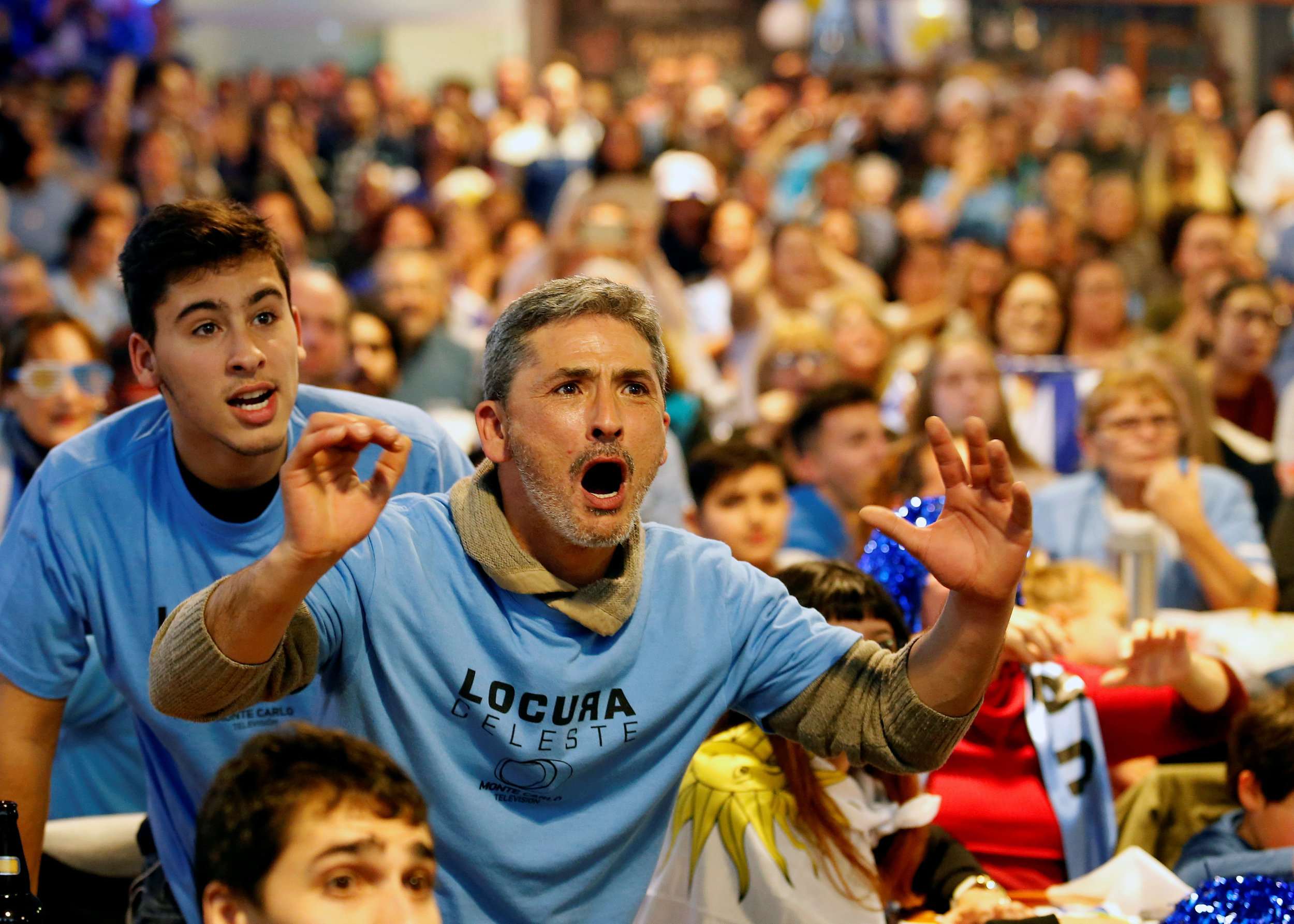
Business
15:23, 06-Jul-2018
Unicorns, waistcoats and other economic World Cup side effects
Updated
14:50, 09-Jul-2018
Nicholas Moore

As the World Cup enters the quarterfinal stage, fans of the tournament's eight remaining teams will be spending big ahead of crucial matches on Friday and Saturday – but what does success mean for those countries’ economies?
Opinion varies over whether or not the World Cup helps or harms economic growth – can greater consumption outweigh the blow to worker productivity?
According to the UK-based Centre for Retail Research, England’s march to the quarterfinals in Russia, their best performance since 2006, has added one billion pounds (1.3 billion US dollars) to the economy, a boost that could rise to 2.7 billion pounds (3.6 billion US dollars) if the Three Lions reach the final.
The report found that every goal scored by England at the tournament could be “worth 165.3 million pounds (218.4 million US dollars) to England's retailers and an extra 33.2 million pounds (43.9 million US dollars) to pubs, hotels and restaurants.”
While spending on alcohol has been an obvious increase – sales of Greene King beer increased by 500,000 during England’s game against Panama – other more surprising products have received an economic boost.
England coach Gareth Southgate has become an unwitting fashion icon during the tournament – sales of his waistcoat at clothing chain Marks and Spencer have jumped by 35 percent, while eBay searches for waistcoats have grown by 25 percent in the past few weeks.
According to The Telegraph, retailers are also enjoying a hike in inflatable unicorn toys, after images of the England team racing in a swimming pool went viral.

England midfielder Jesse Lingard posted pictures of himself with his teammates racing unicorns ahead of their next game, June 20, 2018. / Screenshot from Twitter @JesseLingard
England midfielder Jesse Lingard posted pictures of himself with his teammates racing unicorns ahead of their next game, June 20, 2018. / Screenshot from Twitter @JesseLingard
While spending activity clearly increases with a strong World Cup performance, Spain’s success in 2010 and at the 2012 European Championships came during a recession and had a little lasting impact on the economy.
Productivity is inevitably hit by workers taking time off or being distracted by the tournament. According to Deloitte France, up to three percent of French workers were absent through “sickness” after the national team played during the 2014 World Cup, while up to four percent simply didn’t turn up to work.
France will face Uruguay in the first quarter-final match on Friday, where many workers won’t be able to get in their offices, even if they don’t plan on watching the football. Local media are reporting that at least two municipal governments and six other local authorities will close down during the game, while many private companies are likely to follow suit.

Uruguay fans watching their team against Portugal at a bar in capital Montevideo, June 30, 2018. /VCG Photo
Uruguay fans watching their team against Portugal at a bar in capital Montevideo, June 30, 2018. /VCG Photo
And what happens if your team goes crashing out at this late stage, falling near the final hurdle? Talking to The Independent, Constantinos Antoniou, associate professor of finance and behavioral science, at Warwick Business School in the UK says on “the trading day that follows a loss in the elimination stage of a World Cup the stock market of the losing country falls by about 0.5 percent. The effect is larger for countries where football is more important.”
As a nation comes together to mourn the victory that might have been, the economy can still benefit. When Brazil suffered a shock 3-0 defeat to France in the 1998 World Cup, consumer spending increased by nine percent in the following 12 months, despite a GDP increase of only four percent.
(Cover: England manager Gareth Southgate celebrates victory in the penalty shootout against Colombia, sending waistcoat sales soaring back home, July 3, 2018. /VCG Photo)

SITEMAP
Copyright © 2018 CGTN. Beijing ICP prepared NO.16065310-3
Copyright © 2018 CGTN. Beijing ICP prepared NO.16065310-3